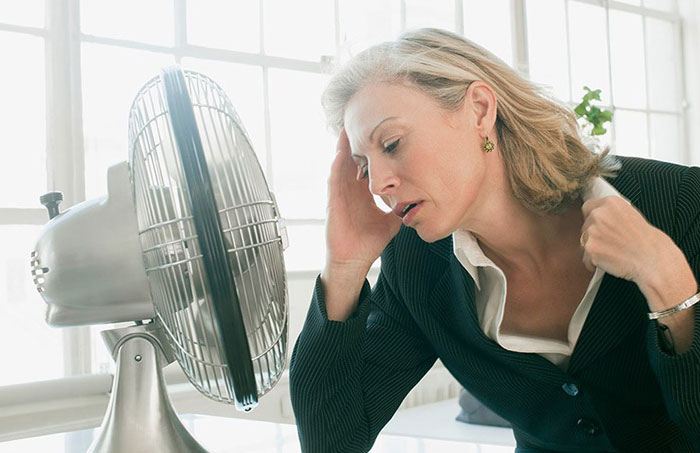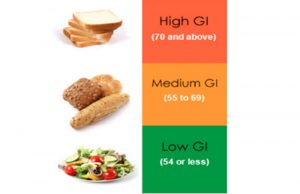Women talk about hormones all the time. Because women go through a monthly menstrual cycle and pregnancy, they are intimately familiar with the effect that hormones have on their physical and emotional state. “I’m feeling hormonal” sounds like a clichéd statement, but it is very real for women, who are attuned to the changes that occur in their body when the delicate balance of hormones is disrupted by normal fluctuations in hormone levels.
However, I have been seeing more women come to me with complaints of hormonal imbalance that are more severe than what we would consider as “normal hormonal fluctuations”. Hormonal imbalance, especially chronic cases, can be terribly debilitating for a woman and cause a lot of misery. Severe hormonal imbalance can affect your mood, your weight, your food cravings – even your desire for sex. In many women, hormonal imbalance is most prominent during the perimenopause phase – this actually describes a lot of women in their 30s and 40s.
Oestrogen dominance
There is a common misconception that the “big” hormone changes only occur during pregnancy and menopause, notwithstanding the monthly menstrual cycle. But in fact, the perimenopause years – which can start anytime from your late 30s or your 40s – are marked by major hormonal swings because your egg production is slowing down. In a normal menstrual cycle, oestrogen is produced for the first 10 to 12 days. When ovulation occurs (release of an egg from the ovaries), the body will then produce another hormone, progesterone, which leads to the thickening of the endometrium so that the egg can be implanted, if it is fertilised.
However, as I mentioned, women in their late 30s or 40s will find their ovulation slowing down, so there may be some months when they do not release an egg. When ovulation does not occur, progesterone is not produced and, therefore, the oestrogen cannot be balanced by progesterone. Some people call this “oestrogen dominance”, because there the amount of oestrogen in the body is too high, compared to the relative level of progesterone. It also puts to rest another misconception that hormonal imbalance is caused by lack of oestrogen.
Oestrogen dominance is believed to be linked to a lot of symptoms and other conditions. You may find yourself experiencing a lot of symptoms that are common with pre-menstrual syndrome (PMS), such as weight gain, mood swings, breast tenderness, migraines, water retention and cramping. There may also be other signs, like hair loss, irregular menstrual flow, spotting, vaginal dryness and low or no sex drive. When oestrogen dominance is present over a prolonged period, and exacerbated by environmental factors (which I will explain in the following section), it could cause a lot of problems in the body. It is believed to increase the risk of endometriosis, uterine fibroids, polycystic ovaries, breast cancer, uterine cancer and thyroid imbalances.
Oestrogen in our environment
Apart from imbalance caused by low levels of progesterone, the body also receives oestrogenic effects from external sources. There are many chemicals – mostly industrial compounds – that mimic natural oestrogen when we are exposed to it through the use of these chemicals. They are called “xenoestrogens”, which basically means “foreign oestrogens”.
You would be surprised to learn that a lot of these chemicals are found in our everyday use, such as pesticides, detergents, petroleum products, plastic products and cosmetics. For instance, you may have read recently that the Ministry of Health Malaysia has banned polycarbonate infant milk bottles containing the chemical Bisphenol A (BPA), or the recent controversy about certain Taiwan food products that were found to contain diethylhexy phthalate (DEHP). These two compounds are strongly believed to be xenoestrogens.
Exposure to these oestrogen-like compounds is a concern, not just for women, but also for men and children. Unfortunately, we live in a world today where we cannot escape exposure to these xenoestrogens, since our everyday habits and routines depend on a lot of industrial items. Even our cleaning products, carpeting, furniture, toiletries and plastic products may contain these compounds. As a result, we could be exposing ourselves to more oestrogenic effects than we need, leading to hormone imbalance.
Getting your balance back
If you are a woman in your 30s or 40s, you may be starting to experience the effects of hormone imbalance as your ovulation decreases. Added to that, you may be further exposed to compounds in your environment that further exaggerate your hormone imbalance. One common mistake made by many people is to treat it as oestrogen deficiency, and take oestrogen replacement therapy, which only worsens the imbalance. Instead, you should look for supplementation with bio-identical natural progesterone.
Natural progesterone can be given in the form of a cream or gel, capsule, tablet to dissolve under your tongue, suppository or nose spray. These natural progesterones should be prescribed by a doctor and made up by a pharmacist, to ensure that it contains the appriopriate levels of progesterone. Natural forms of bio-identical progesterone can be found in some plants and herbs, such as wild yam (Dioscorea villosa). Wild yam contains a compound called diosgenin, which is the active chemical in the plant believed to have progesterone properties.
It is also believed that some herbal formulas containing dandelion and vitex (chaste tree) may help to remove excess oestrogen that come from external sources. You should always be careful when taking herbal preparations or supplements, and ensure that you obtain them from qualified pharmacists, herbalists or practitioners. Even natural herbs or plants can be dangerous if they are not properly prepared, or are taken in excess amounts.
As for avoiding xenoestrogens in your environment, this is something that you may find quite difficult to achieve. Nevertheless, you can reduce your exposure to them for your own good health. For instance, do not heat up food in the microwave using plastic containers, and try to use natural cleaning products and toiletries. Hormones are incredibly sensitive and delicate chemicals in our body, and should be acknowledged for the significant effects they can have on the body when their balance is affected. If we recognise that hormonal imbalance occurs in women in the prime of their lives, we can help many of them regain control over their lives.
The Star Newspaper, Jul 247, 2011
By Dr Nor Ashikin Mokhtar




